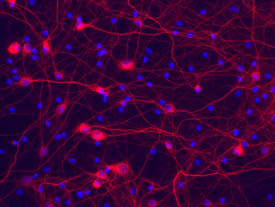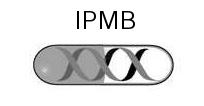TP 7: Investigating the roles of endogenous APP family members in stress signaling and aging
 Under physiological conditions the majority of APP is processed by α-secretase leading to the generation of the large soluble N-terminal fragment sAPPα which has been implicated in a variety of cellular processes and supposed to mediate important physiological function. Previous studies from our labs suggest that sAPPα exerts potent neuroprotective effects via modulation of gene expression as well as by antagonizing oxidative and other types of neurotoxic stress, thereby inhibiting stress-triggered cell death. Moreover, we have shown that the biochemical processing of endogenous APP is down regulated during aging in human fibroblasts, resulting in a notably reduced secretion of the ectodomain.
Under physiological conditions the majority of APP is processed by α-secretase leading to the generation of the large soluble N-terminal fragment sAPPα which has been implicated in a variety of cellular processes and supposed to mediate important physiological function. Previous studies from our labs suggest that sAPPα exerts potent neuroprotective effects via modulation of gene expression as well as by antagonizing oxidative and other types of neurotoxic stress, thereby inhibiting stress-triggered cell death. Moreover, we have shown that the biochemical processing of endogenous APP is down regulated during aging in human fibroblasts, resulting in a notably reduced secretion of the ectodomain.
Based on these observations the project aims at further elucidating the roles of sAPPα as well as other APP family members and cleavage products in neuroprotection by adressing the following questions:
-
What is the mechanism of neuroprotection by sAPPα? How does it modulate aging-associated and stress-induced signaling pathways?
-
Do other APP family members exert neuroprotective functions as well? Are these distinct from the ones of sAPPα?
-
How is the cellular vulnerability modulated by endogenous APP family members and fragments in different models of aging?
-
Is there an effect of APP or APP family members on the regulation of stress-responsive gene expression?
-
Which impact do APP processing, stress signaling pathways and expression of putative APP target genes have in in vivo models of aging?

